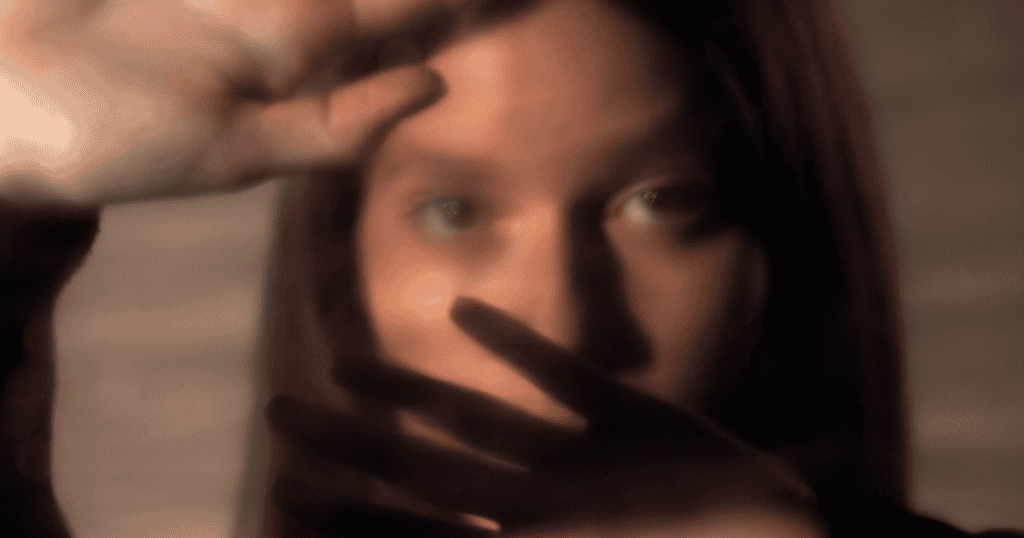The hardest lesson survivors learn is that you can’t make a narcissist stop abusing you.
I didn’t want to believe it.
For years, I kept thinking I just hadn’t tried hard enough.
I adjusted my tone with my mother, softened my words around my younger brother, and poured endless patience into my sister’s outbursts.
I told myself, “If I just stay calm, if I just forgive again, maybe they’ll finally see me differently.”
But no matter what I tried, like boundaries, love, silence, and forgiveness, the abuse never stopped.
It only shapeshifted.
If my mother wasn’t criticizing my choices, she was punishing me with icy silence.
If my brother wasn’t raging, he was sulking until I gave in.
If my sister wasn’t guilt-tripping me, she was playing the victim so I’d come running.
I understood then that abuse isn’t a misunderstanding you can fix. It’s a strategy designed to control.
And once you see that, everything changes.
Because you stop asking how to fix them and start asking how to free yourself.
Table of Contents
Why Nothing You Do Will Make Narcissists Stop

Survivors of narcissistic abuse spend years testing every strategy they can think of, hoping to find the one that finally works.
But with narcissists, every attempt becomes more fuel.
Boundaries Don’t Reform Them
Healthy people adjust when you set a boundary.
My narcissistic mother treated every boundary as a personal insult.
When I told her I couldn’t answer her calls during work hours, she launched into, “So your job is more important than your own mother?”
If I tried to limit visits because I was exhausted, she turned it into an accusation.
“You’ve changed. You think you’re too good for us now,” she would say.
Even the simplest boundaries, like asking her not to criticize my cooking, became battlegrounds.
She’d roll her eyes and sigh dramatically, as if my request to stop being demeaned was an attack on her.
If I pushed harder, she’d escalate into cold silence, making the entire house walk on eggshells.
What I eventually learned is that narcissistic parents see boundaries as rejection.
They can’t tolerate the idea that their child has a separate identity, one not fully controlled by them.
So instead of respecting limits, they twist them into weapons, making you feel guilty for daring to set them.
I used to think my boundaries weren’t strong enough.
But the truth was, she never intended to respect them.
To her, boundaries weren’t requests. They were challenges to override.
Love Doesn’t Heal What They Don’t Have
I thought if I just poured enough love into my toxic sister, it would soften her edges.
I wrote her encouraging notes, shared my things with her, and bent over backward to show her I cared.
But instead of connecting us, it fed her entitlement.
She began to expect my sacrifices as proof of love.
If I hesitated, she’d snap, “If you really cared, you’d do this for me.”
The more I gave, the more she demanded.
Affection wasn’t met with gratitude. It was twisted into leverage.
She’d hold my love hostage, always raising the bar higher.
I once planned a small surprise for her, only to have her scoff that it wasn’t “big enough.”
My effort was never measured by love, only by how much I bent to her expectations.
That’s when it finally hit me: I wasn’t loving her. I was feeding a bottomless pit.
I used to think love could melt through manipulation.
But I learned that you can’t heal what isn’t there.
My love didn’t fix her. It fueled her control.
Patience Only Extends the Cycle

My self-absorbed brother’s outbursts were legendary in our home.
When he raged, I learned to go silent, waiting for the storm to pass.
I told myself, “If I’m patient, he’ll calm down. He’ll realize how much he’s hurting me.”
So I waited.
Days of sulking. Weeks of silence.
Then, just when I thought he was softening, he’d explode again.
The cycle never broke. It only reset.
Patience became my trap.
Every time I gave him space, he took it as proof that his moods controlled the household.
My silence wasn’t peace. To him, it was permission.
There was a time that I waited almost a month, convinced he’d finally matured.
But the very first disagreement we had, he weaponized his rage again, proving nothing had changed.
The truth is, narcissists don’t interpret patience as love or understanding. They interpret it as surrender.
The more patience I gave, the longer the cycle dragged on.
Until I finally saw it for what it was: not an accident, but a loop designed to keep me waiting forever.
Second Chances Reinforce the Game
My controlling sister was always quick with apologies, but only after the damage was done.
She’d cry, promise to do better, and beg me to give her “one more chance.”
And I always did.
But forgiveness didn’t stop her. It only reinforced the pattern.
Within days, she’d guilt-trip me again, and within weeks, we’d be back in the same fight.
Each “fresh start” was just the same toxic cycle dressed up in new words.
I began to notice the rhythm, the explosion, the tears, the apology, the reset, all designed to keep me hooked.
The more I forgave without consequences, the bolder she became.
Her apologies weren’t bridges. They were bait.
And my forgiveness didn’t heal her. It told her the game was still working.
Real healing against a narcissist began only when I stopped treating every apology as a restart and began holding my ground.
That shift didn’t change her narcissistic behavior, but it changed my freedom.
Abuse Is Not a Misunderstanding, It’s a Strategy

For years, I told myself my toxic mom didn’t realize how much she was hurting me.
That maybe she was “just stressed” or “didn’t know any better.”
But then I began to notice the pattern.
When shouting didn’t break me, she went silent.
When silence didn’t work, she tried guilt.
When guilt didn’t land, she turned to charm.
Every tactic had a purpose: to keep me unsteady, always scrambling to win her approval.
One week, she’d humiliate me in front of relatives.
Then, the next, she’d brag about me to the same people, just enough to make me question my own memory of her cruelty.
That push and pull wasn’t accidental. It was calculated.
She knew exactly how to rotate her weapons until she got the reaction she wanted.
Abuse was her system, a carefully honed method to keep me under control.
The Cycle Resets, But It Never Ends

The loop with my toxic brother never changed. It always started with charm.
He’d make jokes, play the “fun sibling,” and get me to let my guard down.
Then came the shift: the devaluing, the criticisms, the sudden rage over something small.
After the explosion came the apologies, a quick sorry, maybe even a hug.
Then back to jokes, laughter, and “everything’s fine now.”
But it never stayed fine. The cycle always resets.
And with every round, I felt smaller.
My confidence shrank while his control grew stronger.
I remember one time he promised me it would be different after a big blow-up, and for a few days, he was almost kind.
But soon enough, the teasing turned cruel, and the shouting returned as if the promise had never existed.
I kept waiting for the loop to end. But I finally realized that it never would.
That was the point.
The cycle wasn’t an accident. It was the very design that kept me trapped.
The Only Way to End a Narcissist’s Abuse

Stop Giving Them Access
The only time the cycle weakened with my jealous sister was when I stopped feeding it.
I stopped explaining myself when she guilt-tripped me.
I refused to get drawn into emotional debates.
I kept our conversations surface-level and short.
Without my emotional energy to hook into, her tactics lost power.
She grew louder at first, desperate to get a rise out of me.
She’d storm around, slam doors, and accuse me of being heartless.
But the less I reacted, the more she flailed.
Eventually, she realized I wasn’t playing anymore, and the grip loosened.
What I learned is that narcissists thrive on reaction, whether it’s your tears, your anger, or your explanations.
Starving the cycle of that fuel isn’t easy, but it’s powerful.
Refusing to engage was the first real act of freedom I gave myself.
It was the moment I stopped being her supply and started reclaiming myself.
Understand Who Actually Changes
In abusive dynamics, it’s never the abuser who changes. It’s the survivor.
For years, I became smaller, quieter, and more careful, reshaping myself to keep my mother calm.
I walked on eggshells, rehearsed conversations, and monitored every tone of voice, hoping this time it would prevent an explosion.
But one day I realized, if change was inevitable, why not change in the opposite direction?
Why not grow bigger, louder, freer?
Why not reclaim all the space I had been taught to shrink from?
I stopped contorting myself to fit her moods and stopped trying to win her approval.
And in doing so, I broke the very cycle she had built her control on.
The transformation began with tiny acts of defiance, like saying no, leaving her messages unanswered, letting her anger fall flat.
Each step was a quiet declaration: I will not bend anymore.
Leaving my toxic family was my ultimate act of rebellion.
Because the cycle doesn’t end when they change.
It ends when I do.
It ends the moment I stop handing them the script they expect me to play.
What Finally Broke the Cycle of Narcissistic Abuse for Me

For years, I believed I could wait, love, or forgive my family for change.
I gave my mother patience, my sister second chances, and my brother endless understanding.
I thought if I just kept trying, one day they’d see me differently.
I clung to the hope that my effort would be enough to turn chaos into connection.
But the breakthrough came when I realized the abuse wasn’t happening because I wasn’t good enough.
It was happening because they chose to keep abusing.
Their cruelty wasn’t a mistake or a misunderstanding. It was a decision, over and over again.
The release didn’t come from fixing them. It came from freeing myself.
I stopped giving them the stage, the reaction, the access.
I stopped explaining, defending, and waiting.
Instead, I redirected my energy into building a life where their approval didn’t determine my worth.
And for the first time, I felt the weight lift.
Narcissists don’t stop abusing because you change. They stop because you’re no longer there to abuse.
And that’s where real freedom begins.
Not in their transformation, but in your escape.
Related posts:
- Why Narcissists Force You to Replay Conversations (And How I Hit ‘Stop’ for Good)?
- Why You Must Stop Asking Narcissists This One Question (Before It Breaks You Down)
- Why Narcissists Love to See You in Pain?: How I Stop Giving Them That Power
- Why You Need to Stop Explaining Your Pain to Narcissists?
- 7 Ways Narcissists Read You Without You Realizing (Until You Start Reading Them Back)


